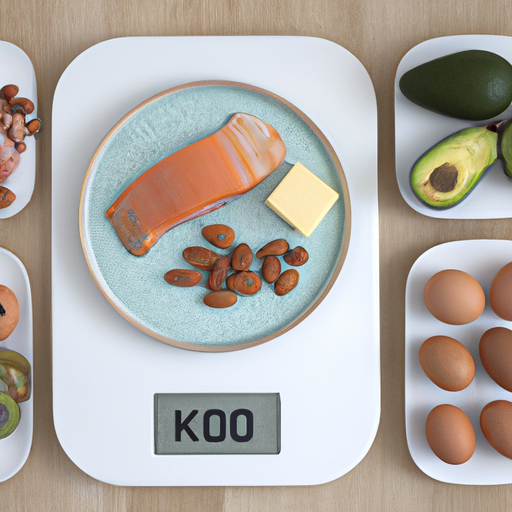If you’ve been wrestling with the question of whether The keto diet or a high-protein diet is the one for you, you aren’t alone. That’s the puzzle you’re going to solve in the article “Keto Vs Protein Diet: Long-term Weight Maintenance”. With a focus on proven science, impartial insight, and practical implications, this article skips the fads and leads you on an exploration of the keto and high-protein diets. It helps you assess which one, if either of them, suits your unique body needs for long-term weight maintenance. Just imagine, you could be set for a healthier and happier life, post this thrilling read.
Overview of Keto Diet
When considering weight loss and management strategies, the keto diet probably crosses your radar. So what is it all about?
Definition and Basics
The ketogenic, or “keto” diet, is a low-carb, high-fat eating plan. It’s designed to get your body into a state known as ketosis, where it’s burning fat for fuel instead of the usual go-to energy source: carbohydrates. Typical keto diets require you to consume about 70 to 75% of your daily calories from fat, 15 to 20% from protein, and just 5 to 10% from carbs. Sounds manageable, right?
Process of Ketosis
The magic of the keto diet happens in ketosis. When you start to eat low- carb and increase fat intake, your body has to look for an alternative energy source. This causes your liver to start converting fat into ketones, a type of molecule that your cells can use for energy. This is the state of ketosis, where your body is burning fat day in and day out, even while you’re sleeping!
Impact on Weight Loss
The impact of a keto diet on weight loss can be impressive. Since your body is burning fat for fuel, you’re likely to experience a substantial decrease in body fat percentage. This can result in overall weight loss, especially when combined with regular exercise.
Overview of Protein Diet
Next stop on the diet exploration train is the protein diet. Let’s dive into what that looks like.
Definition and Basics
A protein diet is an eating plan that focuses on high intake of proteins which can come from, lean meats, dairy products, eggs, and plant-based sources like beans and legumes. There’s less emphasis on the proportions of carbs and fats, as long as protein is front and center.
Benefits of High Protein
Protein is a crucial nutrient for your body. It’s used to build and repair tissues, make enzymes and hormones, and is an essential building block of bones, muscles, and skin. Besides these essential functions, high protein consumption can increase feelings of fullness, reduce hunger, and help increase muscle mass and strength.
Impact on Weight Loss
Just like the keto diet, a protein-based diet can aid in weight loss. Protein can help you feel full longer, reducing overall calorie consumption. Additionally, the body uses more energy—burns more calories—to metabolize protein compared to fat or carbs.
Key Differences Between Keto and Protein Diets
Now that we’ve looked at the basics, let’s see what sets these diet plans apart.
Macronutrient Distribution
The most evident difference lies in macronutrient distribution. In the keto diet, you’re largely consuming fat and strictly limiting carbs. Contrast that with a protein diet, where there are fewer hard rules about carbs and fat as long as your protein intake is sufficient.
Energy Sources
The keto diet forces your body to use fat as its primary energy source, while a protein-focused diet doesn’t necessarily shift your body’s typical energy source.
Impact on Appetite and Satiety
Both diets can help with feelings of fullness, but in different ways. The high-fat content of a keto diet tends to be very satisfying, while protein is known for its ability to make you feel full and decrease overall appetite.
Advantages of Keto Diet in Long-Term Weight Maintenance
There are several ways that a keto diet can help with long- term weight maintenance.
Metabolic Advantages
Staying in ketosis means your body is constantly burning fat. This helps to keep your metabolism high, even as you lose weight.
Impact on Appetite
The high-fat content in a keto diet makes you feel more satisfied, which can reduce food cravings and lead to less overeating.
Effects on Fat Loss and Lean Muscle Mass
A keto diet can help with fat loss and even while helping to maintain your lean muscle mass, giving you a leaner, more muscular appearance.
Disadvantages of Keto Diet in Long-Term Weight Maintenance
However, maintaining a keto diet over the long term can have some drawbacks.
Potential Nutrient Deficiencies
Because the keto diet requires you to limit several food groups, it may result in deficiencies of certain nutrients like certain B vitamins, magnesium, and fiber.
Consideration on Body’s Adaptability
Your body will eventually adapt to being in ketosis, and you might experience a plateau in weight loss efforts.
Risk of ‘Yo-Yo’ Weight Pattern
There is also a risk of the ‘yo-yo’ weight pattern. Once you leave the keto diet and reintroduce carbs into your diet, you might experience rapid weight gain.
Advantages of Protein Diet in Long-Term Weight Maintenance
Similarly, a protein diet has several advantages for long-term weight maintenance.
Effects on Lean Muscle Mass
A high-protein diet can help maintain muscle mass during weight loss, promoting a lean, toned body composition.
Overall Balance and Sustainability
The protein diet allows for a greater variety of foods than the keto diet, offering more nutrients and making it potentially more sustainable.
Flexibility in Food Choices
A protein diet offers more flexibility in food choices without worrying about a strict macro ratio.
Disadvantages of Protein Diet in Long-Term Weight Maintenance
Like any diet plan, the protein diet also comes with foresight on potential downsides.
Possible Kidney Damage
Eating too much protein can take a toll on your kidneys, particularly if you currently have kidney disease.
Potential for Higher Fat Intake
High-protein diets are commonly high in saturated fats, which could elevate cholesterol and risk of heart disease.
Pitfalls of Inadequate Fiber
If you focus too much on protein to the detriment of other vital nutrients, such as fiber, can lead to problems like constipation.
Comparison of Keto and Protein Diets for Specific Health Conditions
Let’s look at how these two diets can impact specific health conditions.
Impact on Heart Health
The keto diet, if high in saturated fats, may not be ideal for individuals with heart disease while a balanced protein diet could provide heart-healthy proteins from plants and fish.
Impact on Blood Sugar and Diabetes
The keto diet could greatly benefit individuals with high blood sugar or diabetes due to its low-carb nature. A high-protein diet can also be beneficial but carbs and fats need to be monitored.
Impact on Hormones
Significant changes in your diet can impact your hormones. Keto diets can cause hormonal changes due to its drastic reduction in carbs, while high-protein diets help to maintain blood sugar levels, reducing the release of stress hormones.
Individual Factors to Consider in Choosing Between Keto and Protein Diets
When choosing a diet, you need to consider individual factors.
Dietary Preferences and Lifestyles
If you enjoy fatty foods and can limit carbs, keto could be your path. If you love meat and seafood and don’t want to limit fruits and grains, a protein diet might be more to your taste.
Personal Health Goals and Needs
If you want to lose a significant amount of weight quickly, keto might work for you. A protein diet can be useful for gradual weight loss while you build and maintain muscle mass.
Genetic Factors and Metabolism
Every person’s genetic predisposition and metabolism can impact how they respond to diets. What works for others might not work for you.
Conclusion: Key Factors in Long-Term Weight Maintenance
Getting down to a healthy weight is just the start; maintaining it is another story.
The Importance of Sustainability
No matter the diet plan you embrace, it needs to be sustainable – something you can stick with for the long term.
Balance and Variety in Food Choices
Ensure your diet provides a balance and variety of nutrients derived from a wide range of food choices.
Lifestyle, Exercise and Sleep Patterns
Diet is just one part of weight maintenance. Remember to keep a healthy lifestyle, including a balanced diet, regular exercise, and adequate sleep.
Keto or protein, the choice is yours. Picking the best long term solution depends on your personal preferences, health goals, and lifestyle.

